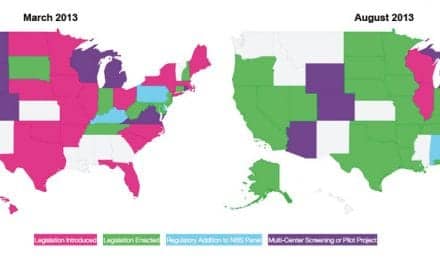What is being called a landmark study supported by the National Heart, Lung, and Blood Institute (NHLBI) of the National Institutes of Health (NIH) found that moderate to severe obstructive sleep apnea (OSA) is associated with an increased risk of death from any cause in middle-aged adults, especially men. According to the NHLBI, this provides “the strongest evidence to date of a link between increased risk of death and sleep apnea.”
The study’s findings support the results of smaller, community-based studies, which have suggested increased frequency of death among adults with sleep apnea.
Study participants with severe OSA had a 46% increased risk of death compared to those who did not have OSA. The mortality risk was most apparent in men, who were more likely to die from any cause as well as from heart disease if they had severe sleep apnea. Additionally, men between 40 and 70 years of age with severe OSA were twice as likely to die during the study compared to their peers who did not have the condition.
The study included more than 6,000 men and women 40 years of age and older from the Sleep Heart Health Study (SHHS) who had no sleep apnea or had mild, moderate, or severe sleep apnea as determined by a standard at-home sleep test at the beginning of the study. According to an announcement about the study, after an average of 8 years, participants who had severe sleep apnea at enrollment were 1.5 times more likely to die from any cause, regardless of age, gender, race, or weight, or whether they were a current or former smoker or had other medical conditions such as high blood pressure, heart disease, or diabetes.
SHHS was conducted in seven medical centers across the United States, and is the largest and most comprehensive prospective multicenter study to date on the risk of cardiovascular disease and other conditions related to sleep apnea.
"Sleep-Disordered Breathing and Mortality: A Prospective Cohort Study," is published in the August 18 issue of the open-access journal PLoS Medicine.







